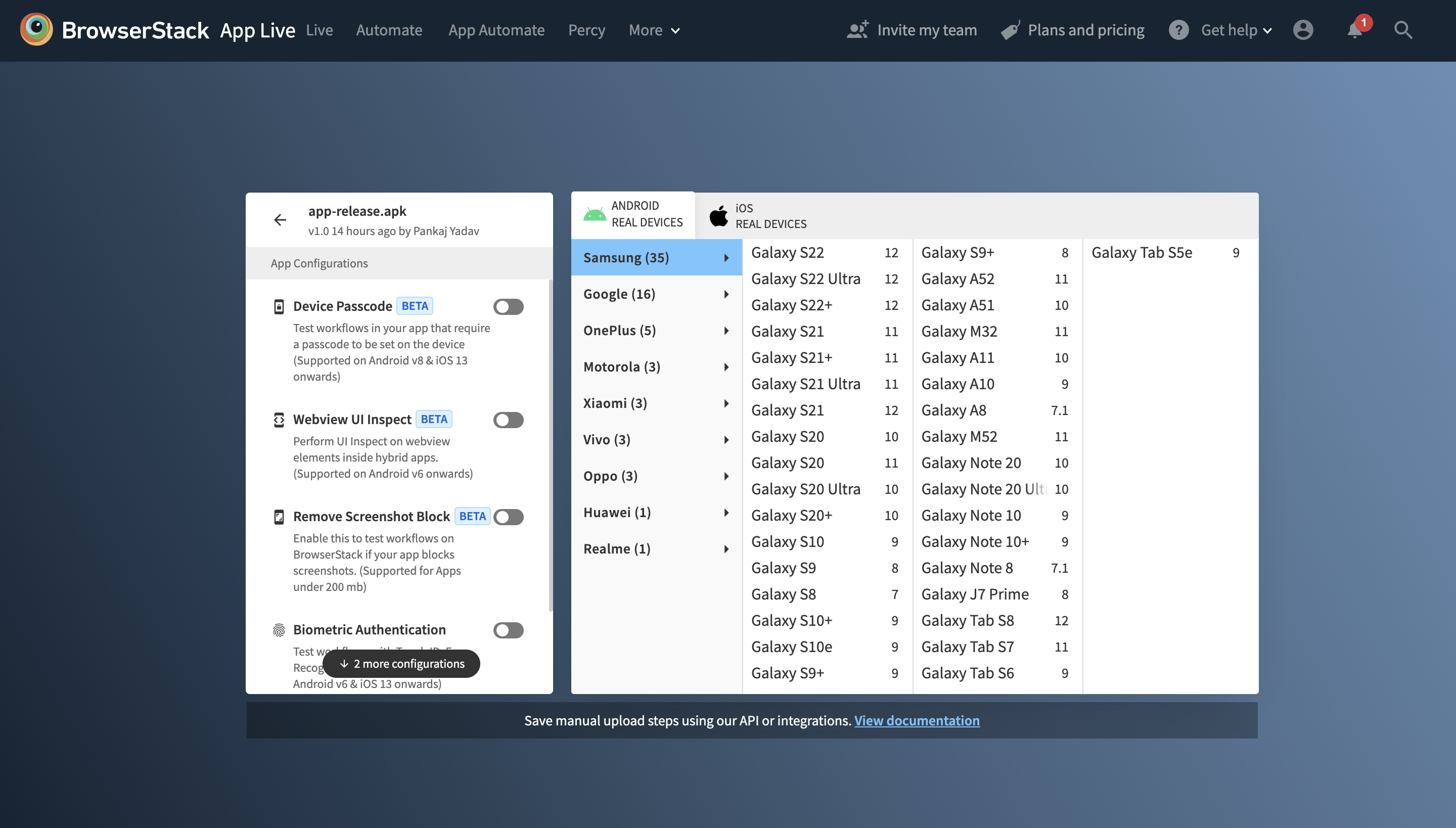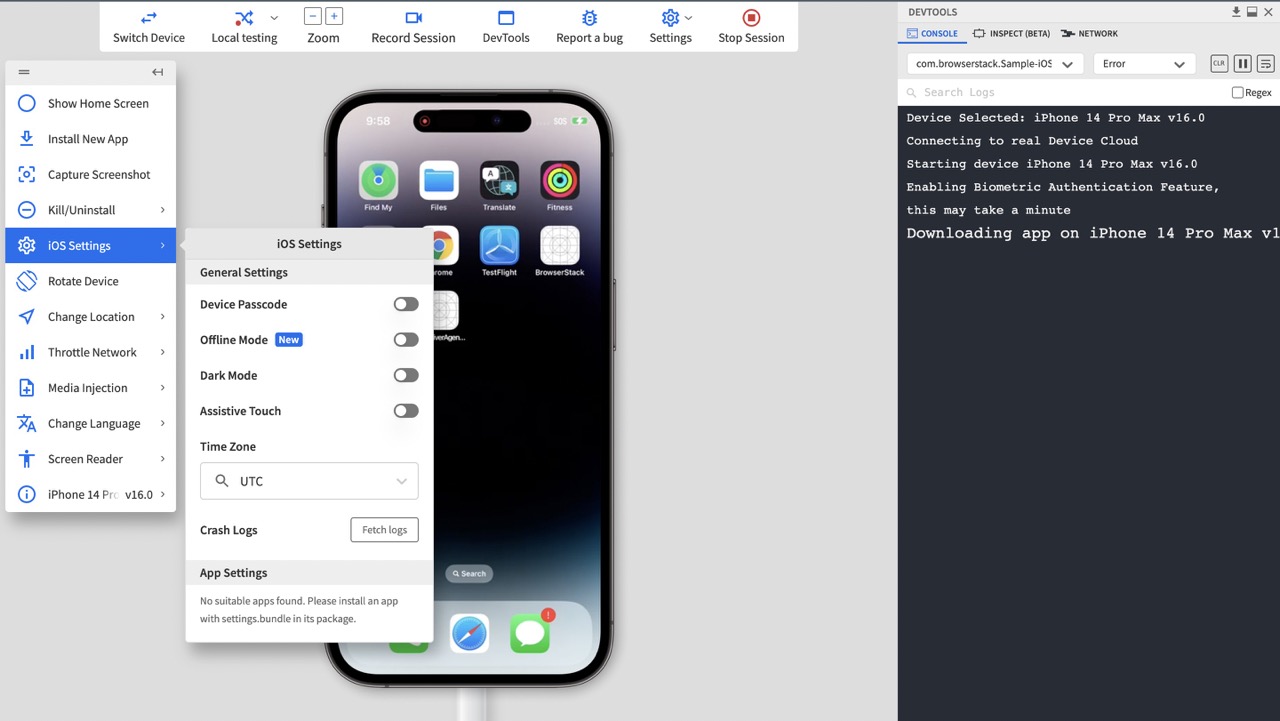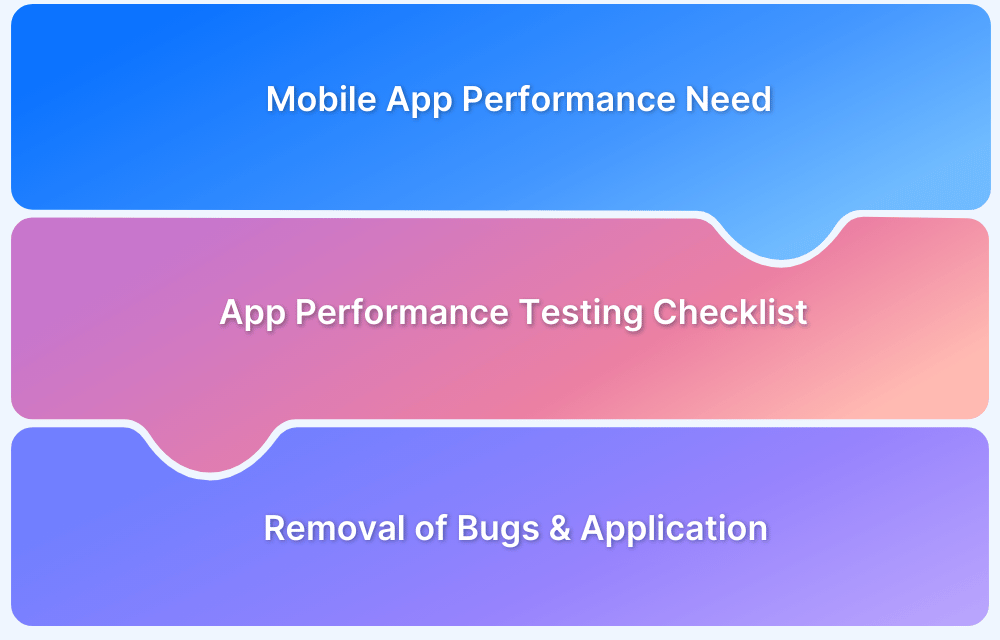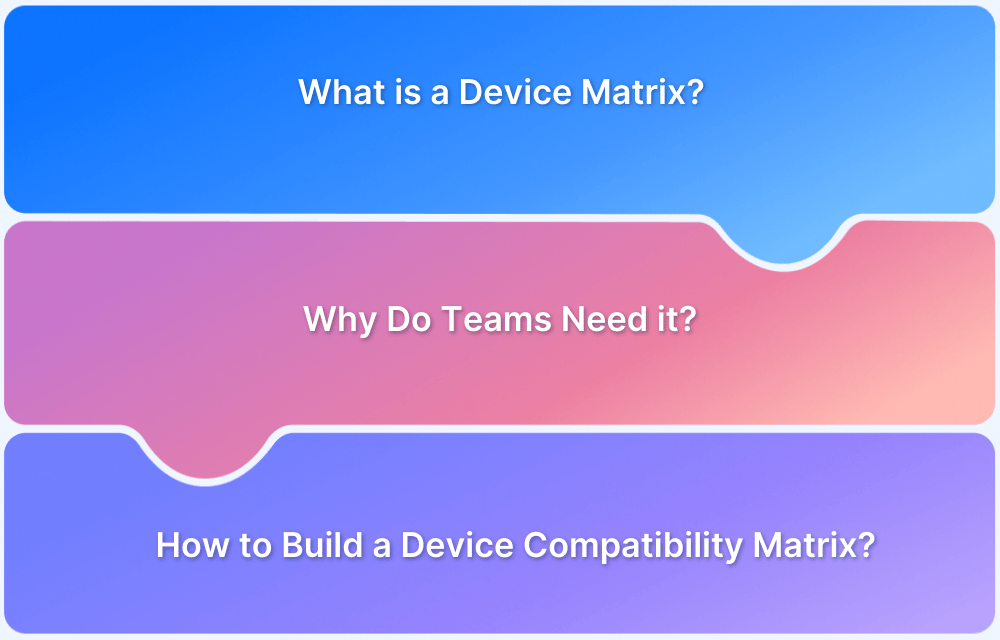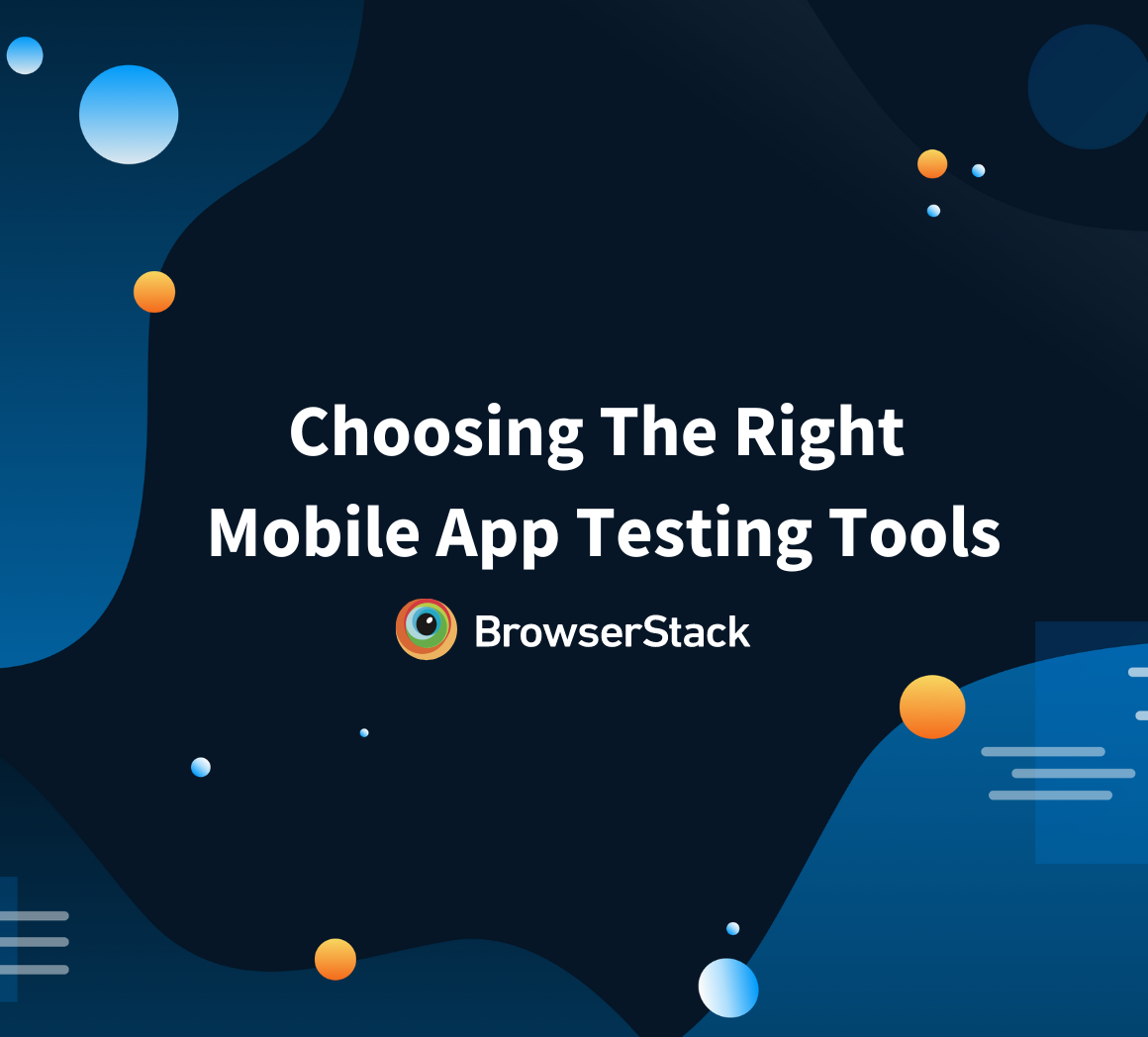Today, users expect mobile apps to be fast, reliable, and free of glitches. Any bug or performance issue can lead to poor reviews, decreased user satisfaction, and app abandonment. Mobile testers need a diverse skill set, including technical expertise, analytical abilities, and strong interpersonal skills, to meet these high standards.
This guide will help you enhance your mobile testing skills and position you as a valuable asset to the QA team.
What is a Mobile Application?
A mobile application is a software bundle with a well-defined set of functionality that runs on a mobile device. It could be a web app or an application developed on the native operating system. In the current scenario, Android and iOS have the largest share of the market for mobile and handheld device operating systems.
There are some essential differences between web and native applications. Once you’ve understood the fundamentals behind mobile application testing, the next step is to set up an infrastructure and workflow for all testing-related activities.
QAOps is sometimes used to describe this part of the Software development life cycle (SDLC).
The best mobile app testing tools depend on the platform, programming language, and overall approach chosen by the developers.
There are some differences and some overlaps between various application platforms:
| Criteria↓/Platform→ | World wide web | Android | iOS |
|---|---|---|---|
| Ownership/control | De-centralized | Google LLC | Apple Inc |
| Distribution mode | Domain and Web hosting | Play store, APKs | App Store |
| Core technologies | HTML, CSS, JS with a long list of supporting frameworks and technologies | Java, Kotlin, Android SDK | Swift, Xcode |
| Supported form factors | Anything that supports an internet connection with a web browser | Phones, tablets, wearables, TVs, and music systems made by various OEMs | iPhone, iPad, Apple TV, watch and other devices in the Apple ecosystem |
| Popularity | 90% of the internet users in the world actively use web applications | 95% of the world’s smartphones and tablets run Android | Less than 4% of handheld devices use iOS |
| Content types | Primarily text and image-based, in the last decade, 2D/3D, video, audio and other accessibility features have also been included. | Can handle a wide range of content types, including CPU/GPU heavy tasks such as gaming, AR/VR etc. | Can handle a wide range of content types, including CPU/GPU heavy tasks such as gaming, AR/VR etc. |
| Unique strength | Can run on the broadest range of devices, Including PCs, virtual machines, and novel operating systems. | Single-handedly dominates the handheld market. | Most sought-after and premium user experience and devices |
| Unique weakness | Low barrier to entry means scam and fishy content is commonplace | The open-source nature combined with fragmented devices and versions out there means higher security risks | Expensive devices with a restrictive ecosystem, lack of customizations, and apps |
Before Android and iOS were famous, there were platforms like Blackberry, Symbian OS, Windows mobile, etc. So, your app tester skills keep changing and evolving with the mobile market.
Keeping this in mind, let us look at the current landscape of mobile application testing and highlight some of the most critical mobile application tester skills.
Mobile Application Tester Skills
A sound approach to optimizing the mobile app testing process involves design thinking principles applied to the testing cycle. Per your mobile app testing checklist, application development tester skills should cover general, team-related, technical, and platform-specific concerns. Let’s dive into it.
General Interpersonal Skills
- Deep Understanding of Business Use Cases: A mobile application tester must grasp both business use cases and customer expectations.
- Analytical Reasoning: Mobile app testers must use analytical reasoning to assess changes, identify issues, and find solutions.
- Attention to Detail: Mobile apps are often complex, with multiple pages, features, and integrations. As a mobile app tester, you must pay attention to even the most minor details.
- Effective Communication: Testers must be able to communicate clearly and share actionable feedback to developers and product managers.
- Solopreneur & Team Player: QA engineers must be capable of working independently to troubleshoot issues while also collaborating with cross-functional teams.
Technical Mobile Application Tester Skills
- Understanding SDLC: Testers should understand the software development life cycle (SDLC) to align test plans with the development process.
- Understanding Mobile App Architecture: Be familiar with how mobile apps are built—native, hybrid, or PWA—since each requires a different testing approach. This is because testing PWAs differ from native applications as native applications use different APIs and programming languages to interact with the host device.
- Formulating Test Plans and Strategy: Create detailed test plans based on use cases and testing scenarios. The repository of test optimization techniques is quite vast, and it takes an experienced tester to judge what technique should be applied where.
- Setting Up Right Test Environments: Mobile app testing requires testing the app on a range of devices with different hardware and software specifications. It’s important to configure your test environments to accurately mirror the diverse range of devices your customers will be using.
- Choosing the Right Testing Tools: With so many devices with different specs, testing your app could quickly become overwhelming. Therefore, choose a mobile testing platform like BrowserStack, which provides access to both Android and iOS devices in the cloud. You can even automate tests across devices to accelerate the QA process.
- Writing Automation Scripts: Learn to write and maintain automation scripts, especially for repetitive tests. Use tools like BrowserStack to automate tests across devices and reduce manual effort.
Pro-Tip: If you know how to write automation scripts, you can take full advantage of the BrowserStack Integrations. By developing a standardized way of writing scripts, you can integrate BrowserStack automation features into your QA workflow and manage results and reports on the cloud.
- Testing under Real User Conditions: Test mobile apps under real-world conditions, including screen gestures, network traffic conditions, geolocation, device orientation, and device language.
These things can affect how an application is rendered on any mobile device, so having the ability to control all these features is a must for mobile application testers.
With BrowserStack App Live, you can
- Adjust real-world variables like network conditions & geo-location
- Test accessibility features like navigability and screen readers
- Instantly check the responsiveness of your web application across a range of devices
- Record and share screenshots from a range of Mobile and desktop devices
- Logging and Recording Behavior: One of the most crucial app tester skills is the ability to record the activity in several ways, including system logs, screenshots, screen recordings, and defect management.
- Data Visualization: Once you have sufficient test data, use data visualization and optimization strategies to present results clearly to stakeholders.
- Organization Level Management: As the scope of testing grows, managing resources and testing goals becomes challenging. Use project management tools to organize test cases, track progress, and collaborate across large teams.
Thankfully, with features like Single Sign-on, Test Analytics, and Parallelization, BrowserStack Enterprise provides an unparalleled ability to manage everything from testing in localhost to testing in production from one single point of entry for all your team members.
Conclusion
- Despite not being a direct contributor to the application code or design, an effective mobile application tester can bring out critical flaws in the application’s design or functioning, saving their employers money and users’ trust.
- Any mobile application tester’s skills should include a mix of technical and non-technical skills. A skilled mobile app tester can transition into a QA Manager by ensuring the quality of software/product releases.
- In the current competitive market, attaining or upgrading mobile app testing skills can help a company to attain success swiftly and avoid pitfalls.



